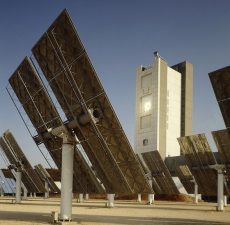 McDonalds is poised to recycle all of its vegetable oil from UAE branches into 100% biodiesel.
McDonalds is poised to recycle all of its vegetable oil from UAE branches into 100% biodiesel.
In conjunction with Dubai-based Neutral Fuels, LLC, McDonalds UAE has committed to converting all of its used vegetable oil into a biofuel. Neutral Fuels LLC is the first commercial producer of 100 per cent biodiesel in the Middle East.
On the heels of Arwa’s excoriation of environmental groups that accept funds from major corporations, McDonalds continues its support of various conservation initiatives. Also affiliated with the Emirates Wildlife Society (EWS), McDonalds uses more than 5,000 gallons of vegetable oil in its 90 branches throughout the UAE, which will be recycled to produce a fuel that is significantly less harmful to the environment than regular diesel.
One hundred per cent
McDonalds will collect all of its used vegetable oil and deliver it to the Neutral Fuel biodiesel plant in Dubai, where it will be converted into 100% biodiesel.
The first of its kind in the Middle East, this facility will produce 264,000 gallons of biodiesel each year, Karl Feilder, the chairman of Neutral Group, the Dubai-based parent of Neutral Fuels, told Bloomberg News.
He added that this measure will reduce the need for diesel imports, although biodiesel supplies from the plant will initially be limited to a select number of companies.
McDonalds UAE Managing Director Rafic Fakih noted that all of the food giant’s vehicles will also be powered by the biodiesel produced from its recycled vegetable oil.
Biodiesel is better for the environment
So, is this just another marketing ploy or can McDonalds have a measurable impact on one of the largest per capita producers of carbon emissions?
America’s National Biodiesel Board, which has been analyzing and collating data related to biodiesel since 1992, found that:
Biodiesel is the best greenhouse gas mitigation strategy for today’s medium and heavy duty vehicles. A 1998 biodiesel lifecycle study, jointly sponsored by the U.S. Department of Energy and the U.S. Department of Agriculture, concluded biodiesel reduces net carbon dioxide emissions by 78 percent compared to petroleum diesel. This is due to biodiesel’s closed carbon cycle. The CO² released into the atmosphere when biodiesel is burned is recycled by growing plants, which are later processed into fuel.
What is biodiesel, really?
Biodiesel is a vegetable or animal fat-based diesel fuel consisting of long-chain alkyl esters and is made by chemically reacting lipids with an alcohol. It can be used in pure form – as will be the case with Neutral Fuel – or mixed with regular petroleum, and it can be used in most diesel engines without many modifications.
Don’t forget cow burps
McDonalds set up their first biodiesel fleet in the United Kingdom in July, 2007. This is an excellent development that needs to be viewed in its proper context.
It’s hard to find straight numbers, but McDonalds uses roughly one billion pounds of beef every year. According to the US Environmental Protection Agency, “globally, ruminant livestock produce about 80 million metric tons of methane annually, accounting for about 28% of global methane emissions from human-related activities.”
Although fostering a biodiesel industry in the UAE is big news and deserves wide applause, not least for its potential to catalyze similar action throughout the Emirates. But McDonalds has to take these measures since their business has, overall, such a detrimental environmental impact.
:: Bloomberg
More on Meat, GHG, and the Middle East:
Halal or Not, McDonalds Food Won’t Decompose
Meat Glue: The Meat Industry’s Dirty Secret
UAE To Cut Electricity Output, Greenhouse Gas Emissions
image via Jay Tamboli



